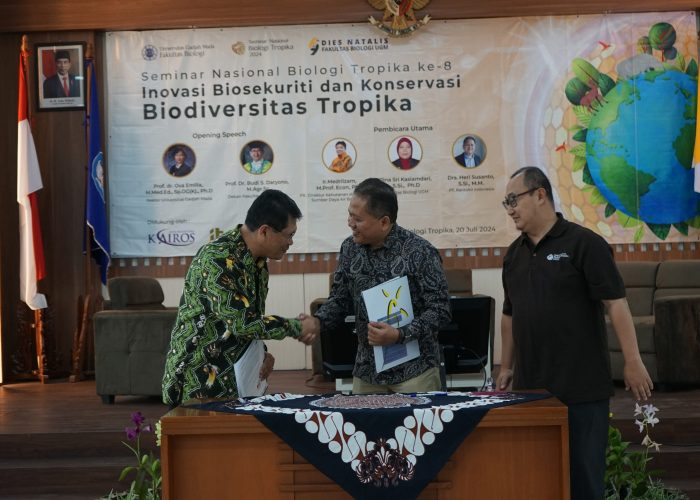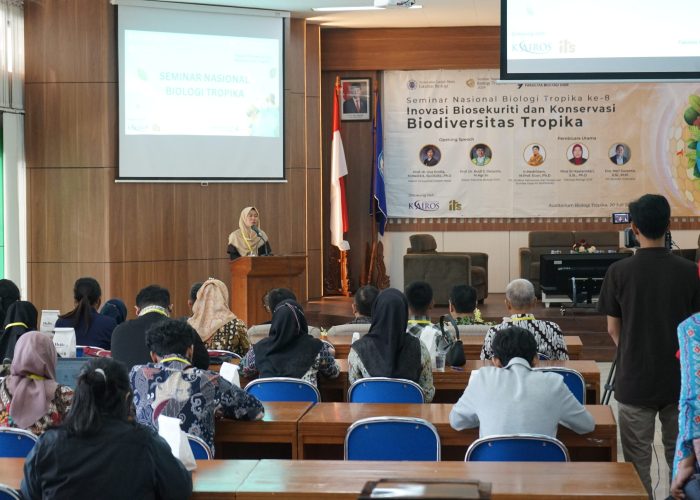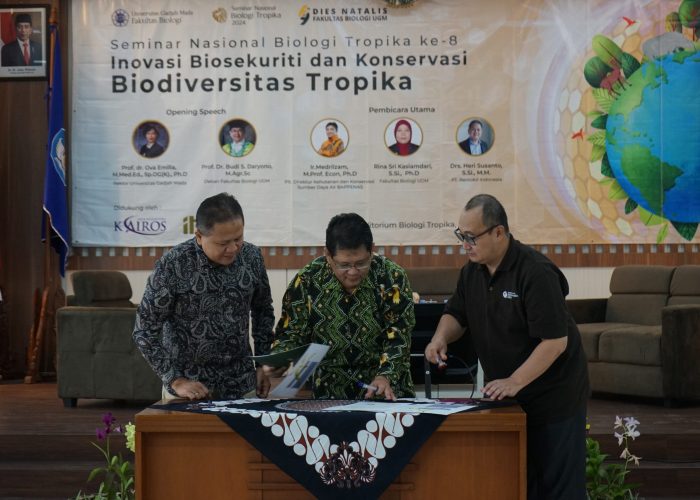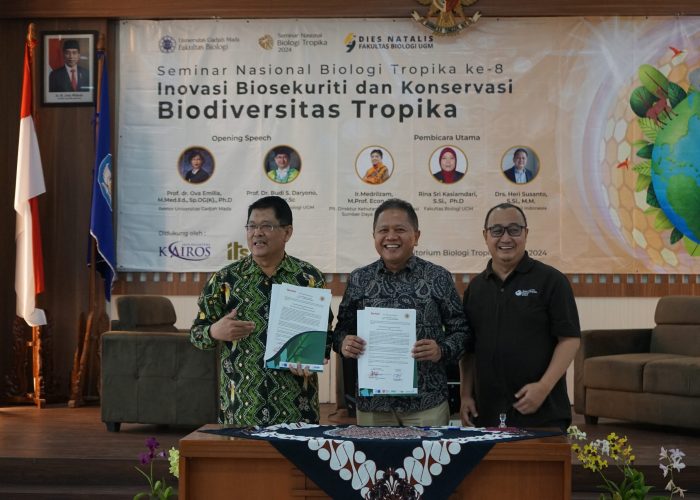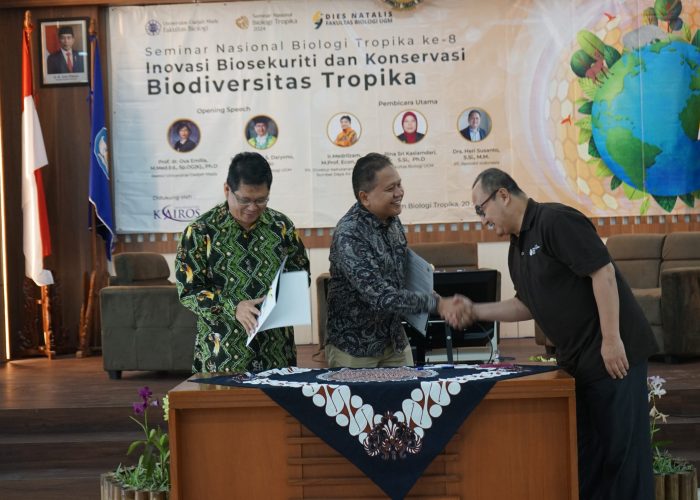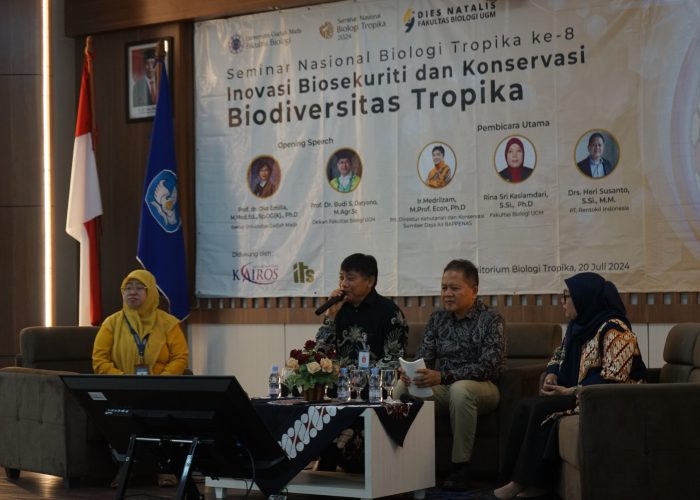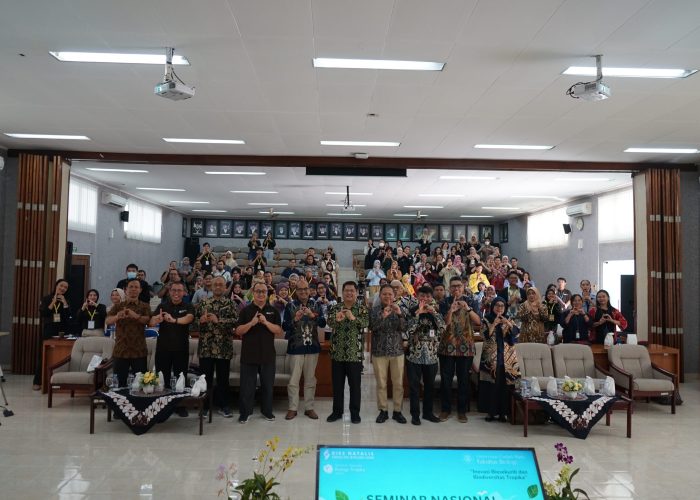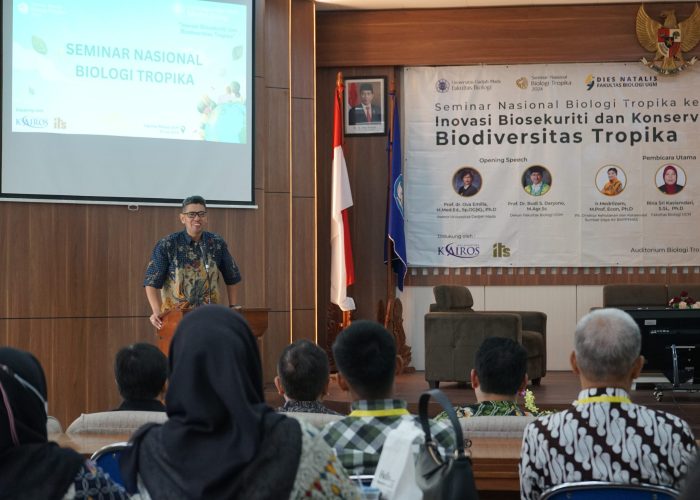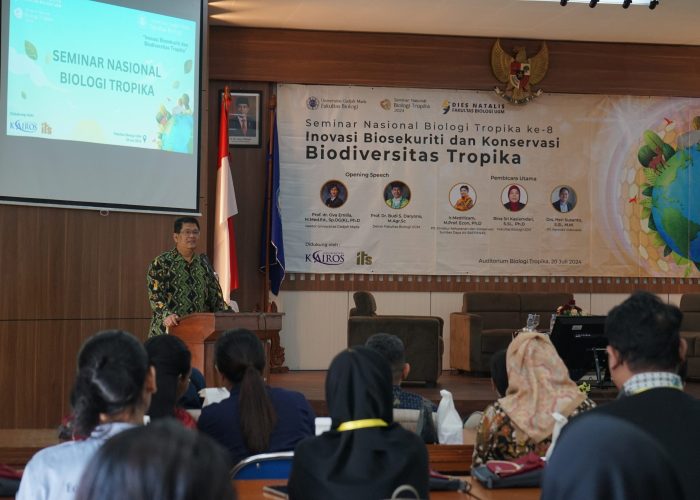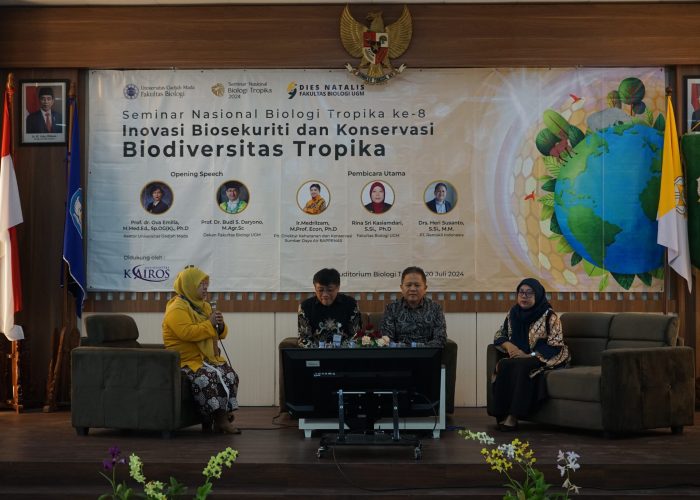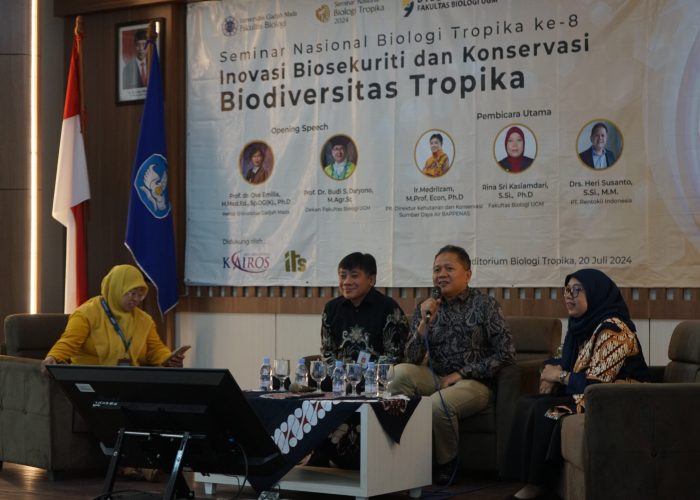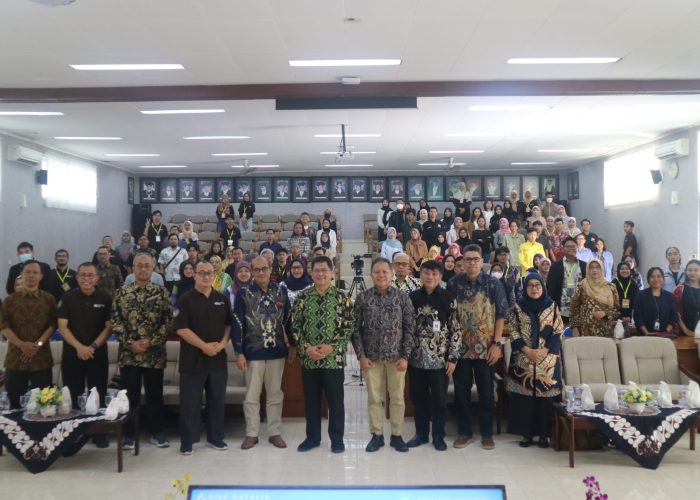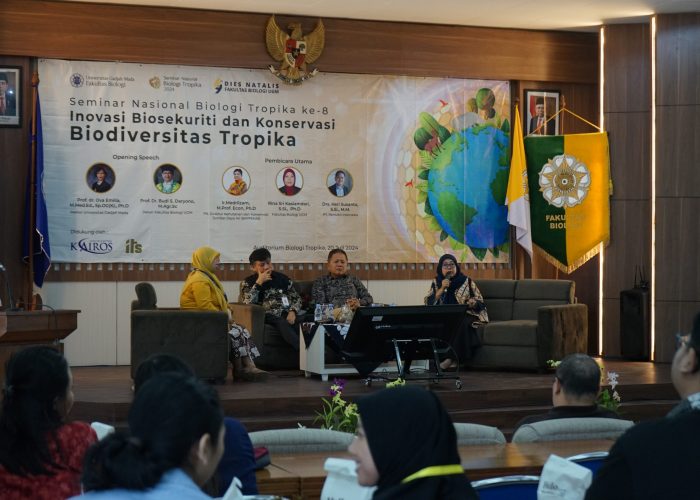Yogyakarta, 20 July 2024 — The Faculty of Biology, Universitas Gadjah Mada (UGM) held the 8th National Seminar on Tropical Biology (SNBT) on 20 July 2024. This year, the seminar was held in a hybrid with “Biosecurity Innovation and Tropical Biodiversity Conservation” theme. This event, which was held at the Auditorium of the Faculty of Biology, aims to provide a platform for academics, researchers, practitioners and students to discuss current issues and innovative solutions in biosecurity and biodiversity conservation in tropical regions. This seminar activity began with a report from Dr. Siti Nurbaiti as chair of the 2024 SNBT Committee, followed by remarks by Prof. Dr. Mirwan Ushada, Director of Research representing the Rector of UGM and opened by Prof. Dr. Budi Setiadi Daryono. M.Agr.Sc., as Dean of the Faculty of Biology UGM. This seminar was attended by around 100 participants from 21 institutions in Indonesia. On this occasion, an MoU was also signed between the Faculty of Biology UGM and PT. Rentokil Indonesia. It is hoped that this collaboration can be a form of synergy between academics and industry, especially regarding the issue of biosecurity and Indonesian biodiversity.
As the first keynote speaker, Ir. Medrilzam from BAPPENAS raised the topic “The Role of Government Policy for Biodiversity Conservation”. In his presentation, Ir. Medrilzam delivered the Indonesian Biodiversity Strategy and Action Plan (IBSAP), the Indonesian government’s strategy for preserving biodiversity, and how these policies are expected to shape people’s behavior towards a positive nature.
As the second speaker, Drs. Heri Susanto from PT. Rentokil Indonesia discussed “The Role of Biological Science and Digital Technology in Sustainable and Environmentally Friendly Pest Control”. In this session, Drs. Heri Susanto conveyed the exploration of the integration of biological science with digital technology to develop pest control methods that are more effective and environmentally friendly.
The third speaker, Mrs. Rina Sri Kasiamdari, Ph.D. delivered material on “The Role of Fungi in Biosecurity and Biodiversity Conservation”. The focus of this discussion is the role of fungi as biosecurity agents in maintaining biodiversity, as well as how fungi can be used in conservation efforts.
The plenary session of the three speakers was enlivened with questions from seminar participants ranging from biodiversity protection related to infrastructure developments to opportunities for food source options with high nutrition from the variety of diversity that Indonesia has to meet food needs and in terms of handling. pest. The seminar activities were continued with parallel sessions filled with presentations by the participant speakers on various research titles, which were carried out offline and online.
The 8th SNBT in 2024 was closed by Dr. Eko Agus Suyono, M.App.Sc., as Vice Dean for Research, Community Service, Collaboration and Alumni Affairs. In his closing remarks, he said that SNBT is a forum for increasing understanding of biosecurity and tropical biodiversity conservation through in-depth discussions with experts in the field, thereby inspiring innovation and collaboration between academics, researchers and practitioners in efforts to protect biodiversity, encourage policy development and new strategies that can be implemented to preserve the environment and support the sustainability of tropical ecosystems. It is also hoped that this national seminar will create synergistic cooperation between the participants who attend, which is expected to be a positive thing that can build and provide more impact regarding issues related to the topic of biosecurity and tropical biodiversity conservation in the future. Furthermore, this seminar plays a role in implementing several points of Sustainable Development Goals (SDG’s): 2. Zero hunger, 3. Good health and well-being, 4. Quality education, 6. Access to clean water and sanitation, 7. Affordable and clean and energy, 9. Industry, innovation and infrastructure, 11. Sustainable cities and communities, 13. Climate change action, 14. Maintaining marine ecosystems, 15. Maintaining land ecosystems and 17. Partnerships for the goals.

